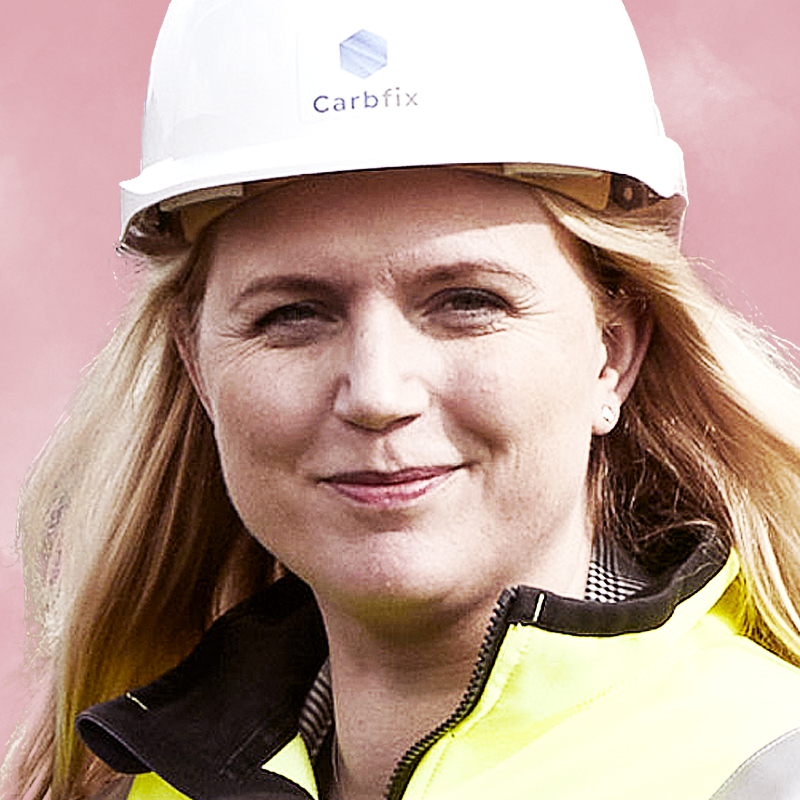Edda Sif Pind Aradóttir is CEO of Carbfix, a company that is permanently sequestering carbon at about 10 sites around the world by pumping a mix of water and CO2 into basalt underground, where the CO2 reacts with minerals in the basalt and turns into rock. Carbfix has injected about 100,000 metric tons of CO2 into the earth since 2012, which is more than all other carbon mineralization companies to date.
What is a climate technology that isn’t getting the attention or funding it deserves?
Funding “first of a kind” scale-ups of proven technologies is, in my mind, the most critical gap that the climate sector is facing. This is a gap that must be closed quickly and efficiently because climate targets rely on scaling a large number of new technologies faster than has ever been done before while simultaneously creating new global value chains. Among critical technologies that lie particularly close to my heart are permanent CO2 mineral storage and geothermal energy utilization.
What sustainability effort do you hope will gain popularity with the general public this year, and why?
The general public deserves transparency when it comes to sustainability efforts and communication. Claims made by organizations of sustainability, carbon neutrality, or net zero need to be supported with reliable, verified data that is presented in a clear manner. Although the public is becoming more educated on the meaning of these terms, it does not mean that the public should have to fact check all claims that are being made, we need to get to a point where companies’ sustainability claims can be trusted.
Where should climate activism go in the next year?
Increased demands on governments and political bodies to follow up on their declared climate goals with firmer, more targeted, just, inclusive, and transparent actions. These would include increased funding for climate mitigation and adoption, including in the global south, but also more efficient regulation when it comes to rapid implementation of the necessary measures. Further, increased demands on the global oil and gas sector to take drastic action and investment decisions to permanently reduce their carbon footprint, because in the end the climate crisis is first and foremost a fossil-fuel crisis.
Correction, 11/17
The original version of this story misstated the number of sequestering sites Carbfix is operating. The current number is about 10, not 14.
- Donald Trump Is TIME's 2024 Person of the Year
- Why We Chose Trump as Person of the Year
- Is Intermittent Fasting Good or Bad for You?
- The 100 Must-Read Books of 2024
- The 20 Best Christmas TV Episodes
- Column: If Optimism Feels Ridiculous Now, Try Hope
- The Future of Climate Action Is Trade Policy
- Merle Bombardieri Is Helping People Make the Baby Decision
